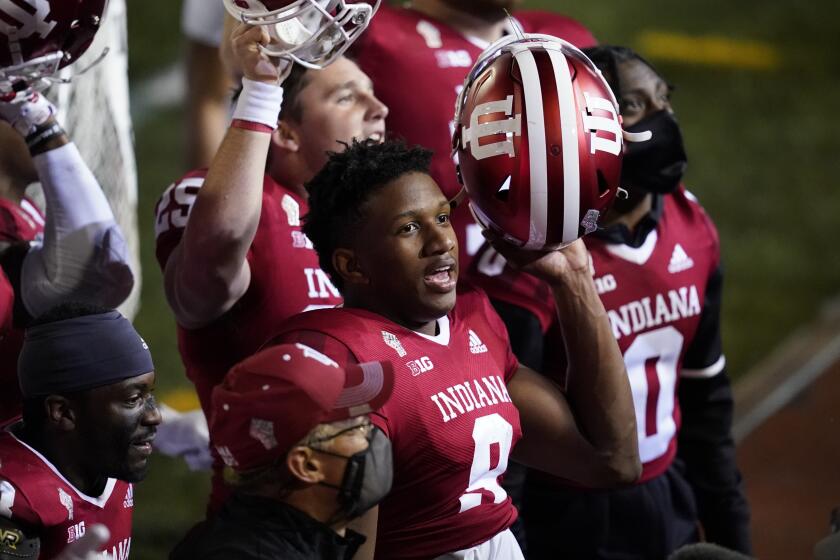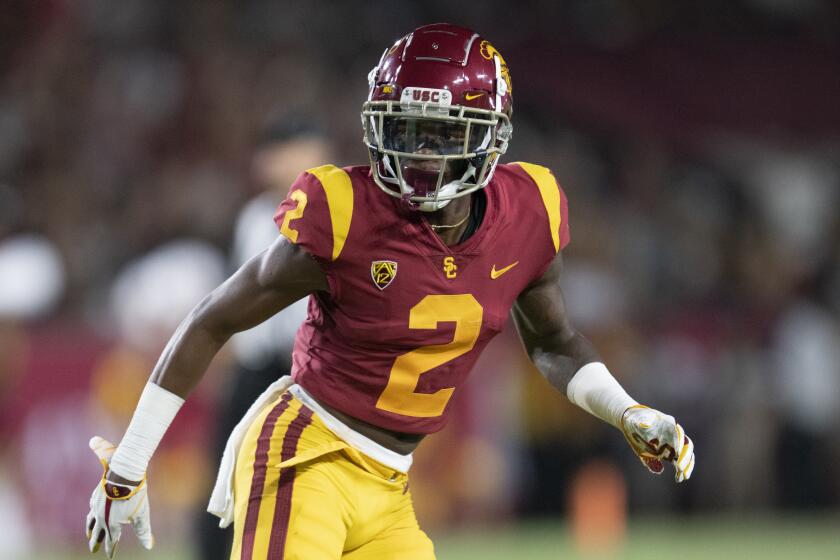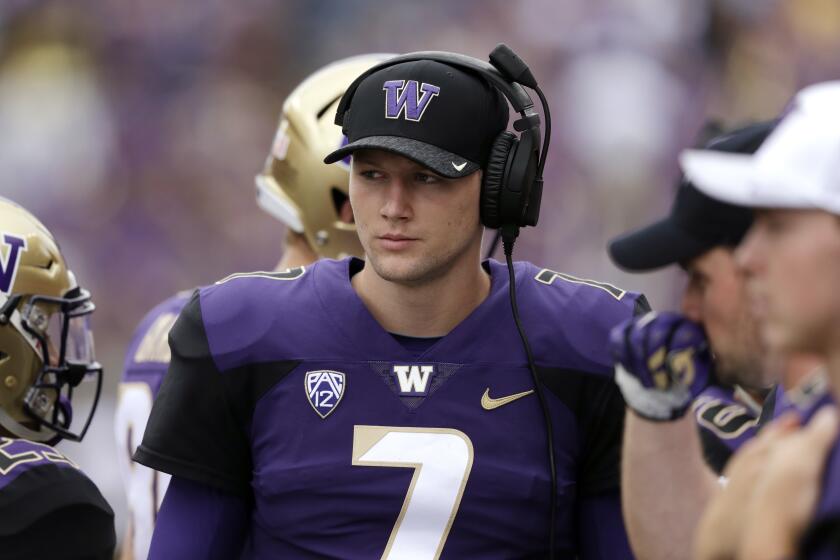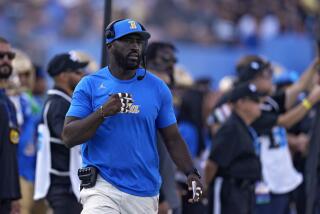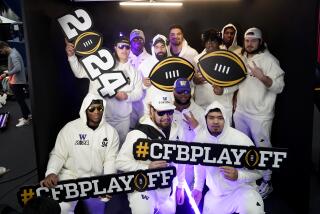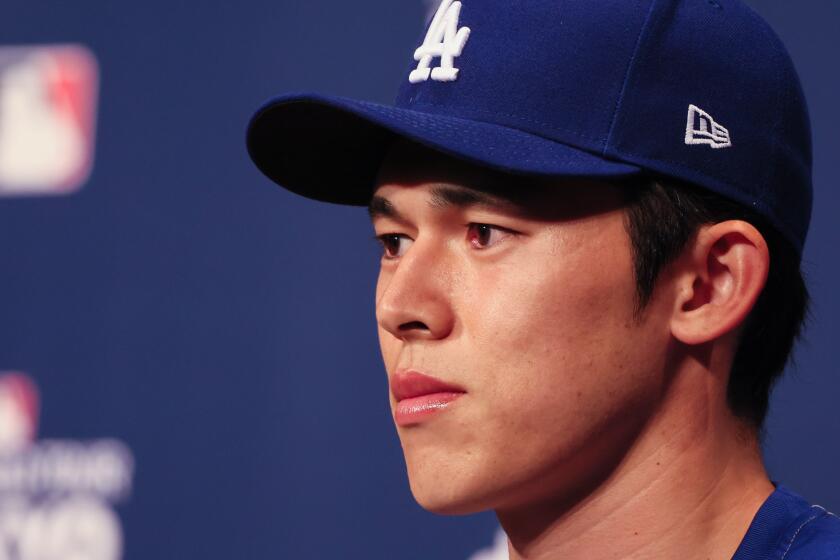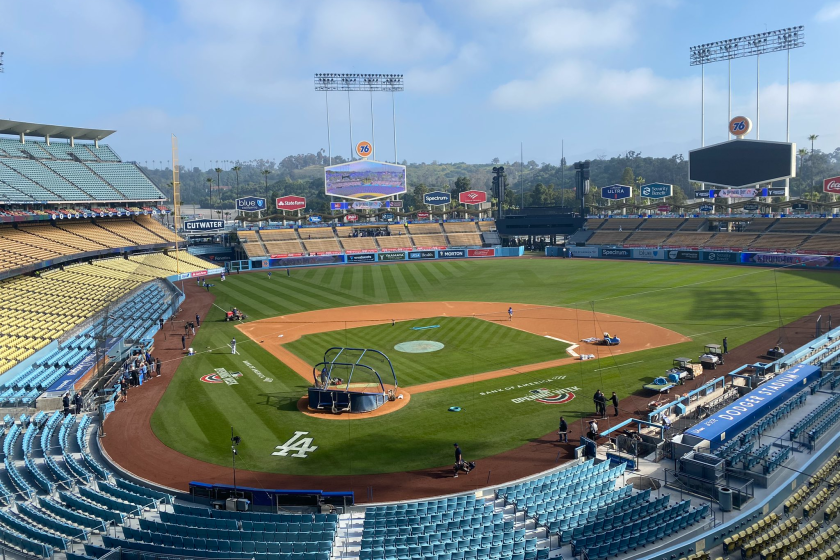With no Pac-12 games airing late, college football fans are left in a dark place
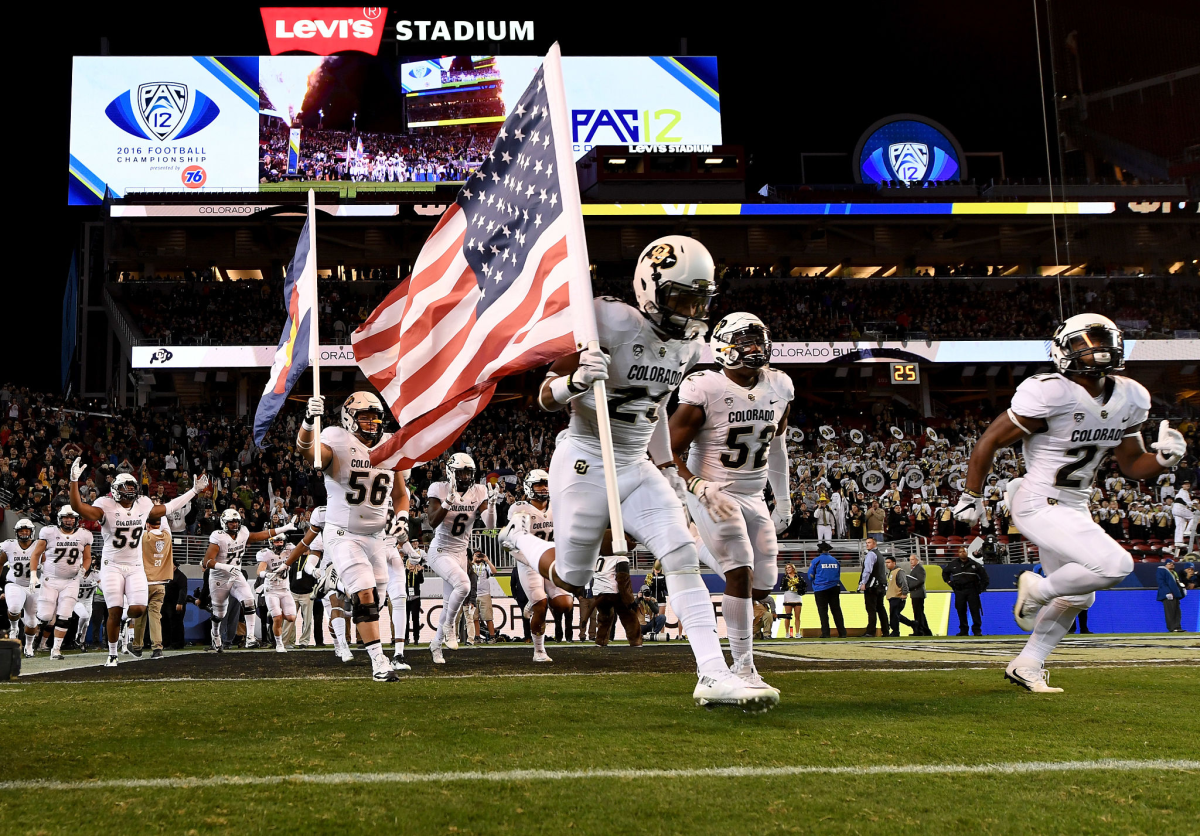
- Share via
For a month now, as college football has attempted to bring back some normal fall vibes in the middle of a seemingly never-ending pandemic, plenty has been missing from the experience.
Packed stadiums. Marching bands. Cheerleaders. Tailgates. Lee Corso making his picks live from a campus cresting with anticipation before kickoff. So many things we’ve come to count on as ritual gone, some more replaceable than others.
Around the 2014 season, a wacky West Coast phenomenon took the nation by hold and has since grabbed a place among the sport’s most beloved traditions — and its absence in 2020 has created a gulf in our hearts that simply can’t be filled.
This season, when the prime-time games have completed at around 8 p.m. Pacific and 11 p.m. Eastern, fans across the country have reached for their remotes, thumbed through the guide and found nothing but pure sadness.
Indiana beat No. 8 Penn State in overtime, while wide receiver Jaylen Waddle suffered a possible season-ending injury in Alabama’s win at Tennessee.
Because no “Pac-12 After Dark” means no more college football for another week.
“Night’s over, go to bed,” Anthony Moeglin, a 23-year-old self-described college football junkie in Ohio, said of this new reality.
“Thoroughly depressing,” said Carson Cunningham, a TV sports anchor based in Oklahoma City. “It’s breaking up my routine. I hate it.”
Last Saturday, Cunningham was among the weekly deluge of fans who went to Twitter after the early end of the festivities to air their feelings. “I just scrolled through the channels looking for #Pac12AfterDark…” he said, posting a GIF of actor Steve Carell as Michael Scott from “The Office” nodding slowly and holding back tears.
Starters Olaijah Griffin and Chris Steele hope to thrive in the system installed by new cornerbacks coach Donte Williams.
For Cunningham and others who either work late on Saturdays or are night-owl types, the Pac-12’s decision to postpone its season has been a big blow. All they can do is reminisce about the good old days until Nov. 7, when the league will release more After Dark offerings into what is sure to be another wondrous night.
“It’s amazing for us,” Cunningham said. “It’s midnight, and we’re in the middle of a Pac-12 football game, and we have something to watch while we wind down. It’s become a rite of passage, and typically it’s always a wild game. It’s become its own moniker for a reason.”
Queuing up Netflix or Hulu this fall hasn’t cut it for Cunningham’s ilk.
“For someone like me, who’s busy all day either working or doing stuff with my family, that was always the relaxation game,” said Rob Cassidy, who is based in Miami and covers college recruiting for Rivals. “Everything is quiet. Everyone is in bed. And I can sit down and watch Washington State throw the ball 50 times or whatever’s going to happen. I do miss it.
“It seems like an incomplete season, an incomplete day, on Saturdays. The season hasn’t held my interest like it usually does. I don’t think that’s directly correlated to ‘Pac-12 After Dark,’ but it doesn’t seem like a real football season.”
While East Coast fans are getting some extra sleep this autumn, fans in Pac-12 country have legitimate waking hours left to fill.
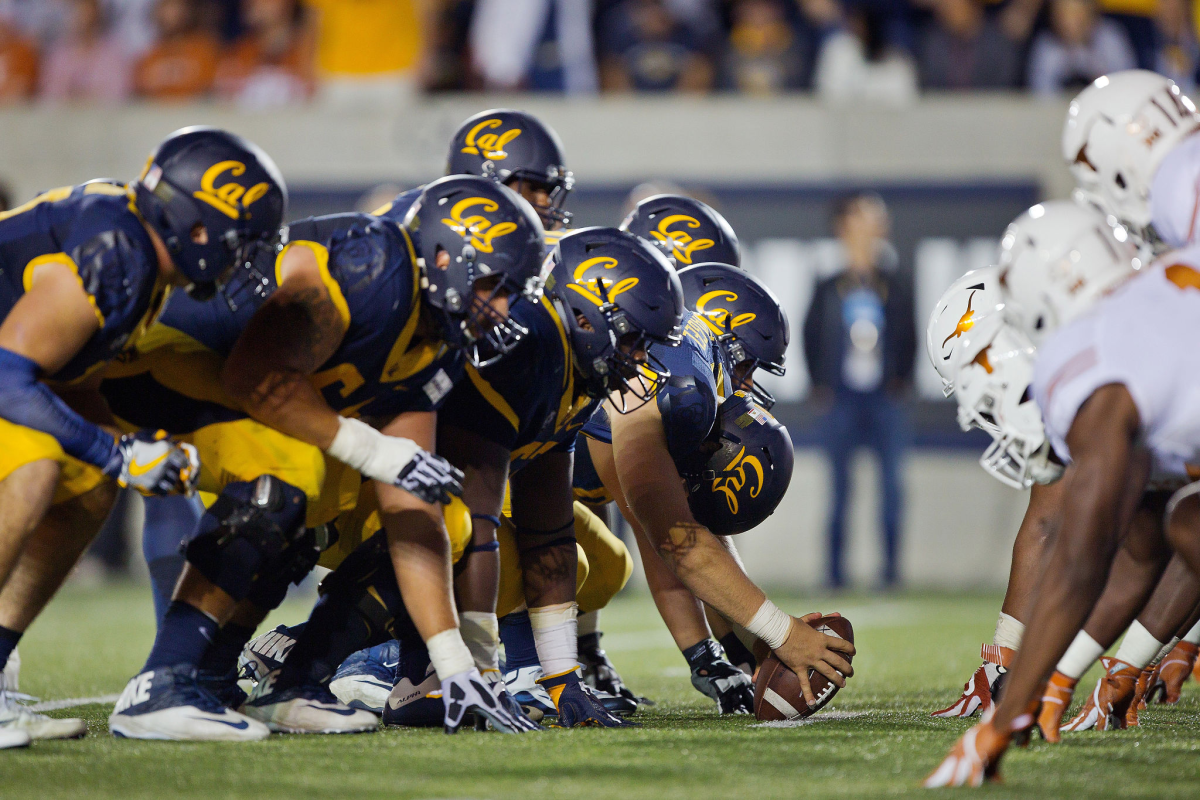
One Saturday, Dave Yoo, who owns a tech start-up in San Francisco, got his two kids down for bed and sat down to watch some college football. He opened an app on his phone to see which games were on.
“I look at the times, and it says ‘final, final, final, final,’ ” Yoo said.
Yoo is a California graduate and remembers how the Golden Bears were victimized in one of the first classic #Pac12AfterDark games in 2014, when Arizona erased a 15-point deficit in the final five minutes and beat Cal on a Hail Mary.
“The heartbreaking ones really stick with you,” he said.
Fortunately, last season, Yoo was on the other side of Cal’s upset of Washington that featured a two-plus-hour lightning delay and finished in the wee hours of the morning.
“I kind of like that the time slot has been branded with this sort of a mystique,” Yoo said. “The crazy stuff happens in the Pac-12 after dark.”
Yet, the Pac-12’s focus in its restarted season has been promoting the inaugural Pac-12 After Breakfast, with USC and Arizona State kicking off at 9 a.m. Pacific.
Colson Yankoff entered UCLA’s camp as a backup to the Pac-12 Conference’s most experienced quarterback. Now, he’s jockeying for playing time as a receiver.
The thinking from the conference is that airing an attractive Pac-12 game at noon Eastern will expose more eyeballs to the league’s best teams and players and create more national buzz throughout the day. To Pac-12 commissioner Larry Scott, that opportunity is worth having players’ alarms going off on Saturday mornings around the time that the Washington-Cal game finished last year.
It also might not be as much of a slam dunk for ratings as he assumes.
“Especially out here, you’re battling with the Big Ten, which will make it tough,” said Moeglin, the Ohioan. “In general, I wouldn’t really seek out a Pac-12 game if it was played at a normal time.”
“Honestly,” said Cunningham, the Oklahoman, “I don’t watch Pac-12 football unless it’s late at night. That time slot is the best way for people like myself in the middle of the country to find it. You’ve got the early games in the Big 12 and SEC. Unless it’s a top-five matchup that gets the earlier treatment, I’m not really seeking out the Pac-12.”
Hopefully, this year will show that the Pac-12 can provide a hearty breakfast and its usual special nightcap concoction. The league has not announced which of its Nov. 7 games will get the coveted After Dark slot. No matter who’s playing, an eager college football nation will be ready to imbibe.
More to Read
Go beyond the scoreboard
Get the latest on L.A.'s teams in the daily Sports Report newsletter.
You may occasionally receive promotional content from the Los Angeles Times.

